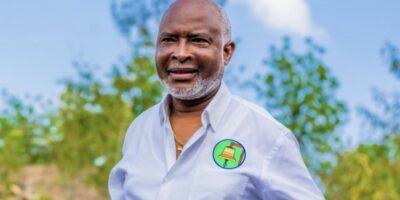This profession, which began in the 1950s to compensate for the lack of auxiliary personnel to administer oxygen to patients, does not yet exist in Haiti. Nurses and doctors around the country take care of it, says nurse Dootie Baptiste
Anthony Pascal, known as “Konpè Filo”, died on July 31, 2020, in an ambulance that took him to the hospital. He was in respiratory distress. The ambulance was not equipped with oxygen, to save his life.
Tragedies like Konpè Filo’s are common in Haiti. Not only are most hospitals and ambulances lacking adequate equipment, few people are trained in how to use them.
These are the respiratory therapists who take care of artificial respiration devices commonly called ventilators. At the height of the coronavirus pandemic, a virus that particularly affects the respiratory system, these ventilators became increasingly important.
This profession, which began in the 1950s to compensate for the lack of auxiliary personnel to administer oxygen to patients, does not yet exist in Haiti. Nurses and doctors are taking care of it in the country, according to Dootie Baptiste, a nurse who worked in the Covid-19 center in Canaan.
Additionally, in many hospitals these materials are obsolete. They still use oxygen tanks unlike the rest of the world, according to Stéphane Dragon, a respiratory therapist with twenty years of experience.
“Medical centers that do not serve a large population are the only ones still using canisters. The hospitals are now equipped with an oxygen tank placed outside the building, which supplies all of the wards” he says.
An Important Specialty
People with lung disease, those who have suffered a heart attack or stroke, or patients with asthma often need breathing assistance. The respiratory therapist plays a crucial role in these cases.
“Respiratory therapists work in concert with pulmonologists, cardiologists and surgeons. They are very present in hospital emergency rooms and in intensive care units” explains Stéphane Dragon.
He studied this specialty in the United States and worked there. However, his license expires on May 21st of this year, and he must undergo an assessment to renew his diploma for the next two years.
“During large operations that require general anesthesia, where the patient is no longer breathing, the respiratory therapist is the one who puts the patient on an artificial ventilator. This device aims to provide artificial ventilation to the patient’s lungs” says the therapist.
During large operations that require general anesthesia, where the patient is no longer breathing, the respiratory therapist is the one who puts the patient on an artificial ventilator.
This artificial ventilation is done by intubation. A nasal catheter or a mask, depending on the severity of the case, helps the patient breathe. Thus, under the supervision of the professional, the machine supplements the natural respiratory tract, carrying air to the lungs and restoring oxygenation of the blood.
After a heart attack, respiratory therapists also intervene to resuscitate the patient during the fifteen minutes following the event.
Missed Opportunity
As this profession is not taught in Haiti, before the coronavirus most hospitals did not have the capacity to intubate patients with severe respiratory attacks. This is what the pulmonologist Jean Ardouin Esther Louis Charles, Medical Director of the Sanatorium hospital, confides.
“The Bernard Mevs hospital and the Mirebalais University Hospital were the only ones that had more or less the capacity. But their system was not efficient enough. Before the coronavirus, we had small 2,000-liter oxygen cylinders in hospitals” admits the pulmonologist.
Read also : Le calvaire de ceux qui souffrent de rhumatisme en Haïti
He believes that the state has failed to take advantage of the new coronavirus to equip the State University Hospital of Haiti (HUEH) with an oxygen tank.
“Thousands of dollars have been spent in connection with the coronavirus for the acquisition of oxygen tanks. After spending, the government found that these materials could not last long. Authorities have now ordered oxygen generators. On average, a generator can power five ventilated patients” he says.
An Absent Course
Not only is the respiratory therapist profession not taught in the country, doctors do not receive courses on oxygen therapy during their medical training either. Oxygen therapy involves providing supplemental oxygen to a patient.
“It was during my internship that I learned about oxygen therapy” says gynecologist Vilson Bonhomme, resident doctor at the Isaïe Jeanty maternity hospital (Chancerelles).
However, private nursing schools in Haiti do not address this specialty. It was also during her internship that Louna Occean, who studied at the Faculty of Nursing in Port-au-Prince, heard about it.
“The absence of the respiratory therapist profession proves the failure of the Haitian medical system. With the coronavirus, the State should have taken note and thought about integrating this profession into medical practices in Haiti” believes Stéphane Dragon.
Emmanuel Moïse Yves







Comments